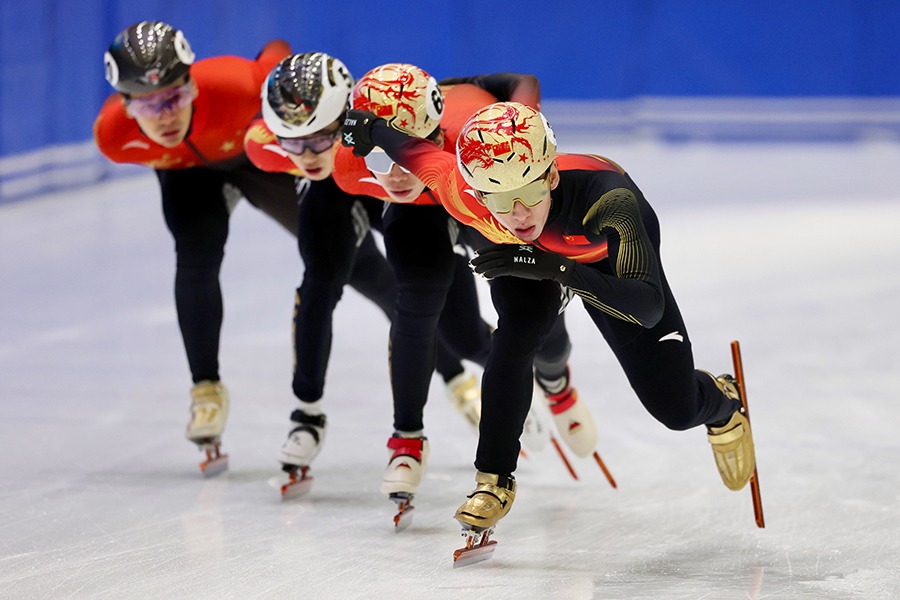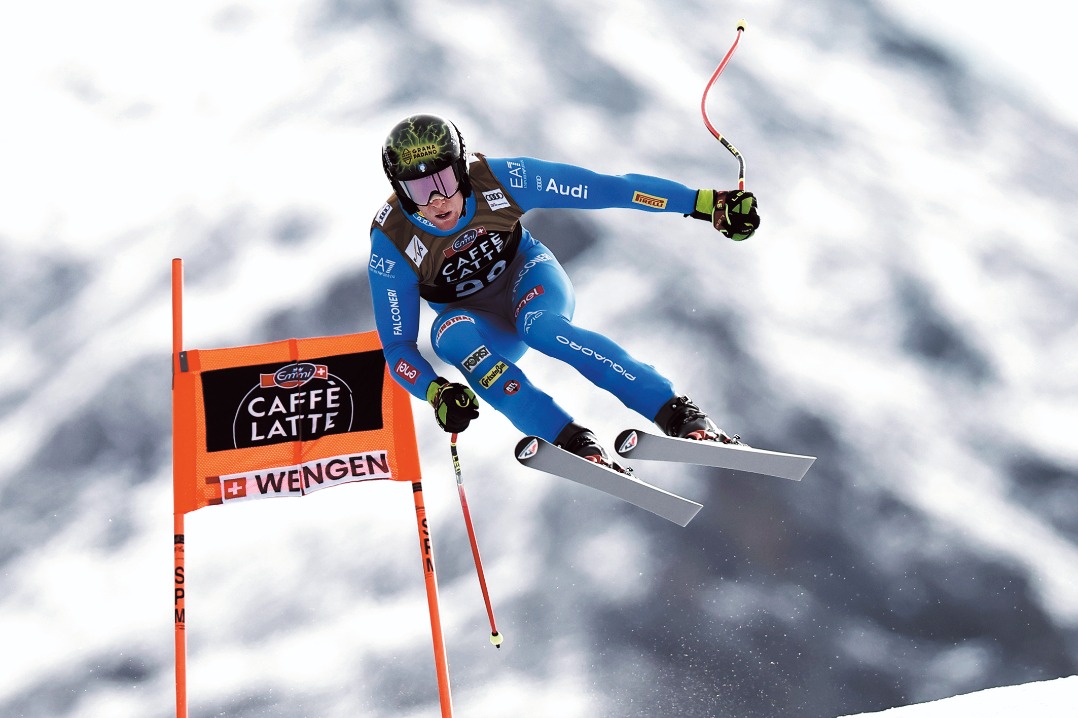Digital tailor is the perfect fit


Cutting-edge digital technology ensures the ceremonial team and volunteers at the Asian Games look sharp, Wang Xin reports
Tapping into the host city's high-tech ethos, the design and production process of the ceremonial attire for the 19th Asian Games in Hangzhou, made by Boya Fashion Co in Shaoxing of Zhejiang province, was heavily influenced by digitalization.
The outfit sets include award ceremony dresses for women with matching footwear, and uniforms for male flag bearers, which feature coordinated ties and shoes. Boya produced more than 800 ceremonial dresses and over 300 uniforms, as well as more than 20,000 sets of clothing for volunteers.
Themed "Clouds in Twilight", the ceremonial attire is one of the important visual images of the Hangzhou Games, designed to reflect the spirit of the Games and display Chinese culture.
Li Yajian, president of Boya Fashion, pointed out that the ceremonial dress is an improved cheongsam, or qipao, which reflects the traditional beauty of the East, with its pattern designs mainly inspired by elements from the Qiantang River tide and the "Ten Scenes of West Lake" in Hangzhou. These include: the Su Causeway; Breeze-ruffled Lotuses at Quyuan Garden; Lingering Snow on Broken Bridge; Leifeng Pagoda at Dusk and Three Pools Mirroring the Moon, which, as the name suggests, should be visited at sunset or on moonlit nights.
The colors are in keeping with the color system of the Games, consisting of Rainbow Purple, Laurus Yellow, Mist White and Lake-and-Mountain Green. The flag bearer uniforms mainly feature Laurus Yellow and Mist White, with extra orange decoration on the ties, which symbolizes the autumn harvest.
"Actually, it was not easy to get this opportunity to serve the Games," Li recalled.
"Our application of the digitalized techniques, customized services and prompt response to the Games' personalized demands were the main things that helped us stand out among the competition. We have made hundreds of adjustments to the details," Li added.
Established in 2000, Boya Fashion has made a concerted effort in implementing digitalization into its tailor-made services since 2014. Now a leader in customized clothing services, Boya Fashion has taken its products to markets in Europe and South America, and is also looking to introduce its digital tailoring services to more overseas markets.
"We have been improving our digital tailoring system for personalized clothing customization, so as to better cater to diverse individual preferences, body types and styles through innovative and distinctive designs," said Li.
"The making of the ceremonial attire is greatly different from the traditional production process. We started with a digital blueprint incorporating dynamic 3D effects," Li further explained. "After the design was complete, we ordered the customized fabrics, which are specially made from mulberry silk. Then, our skilled artisans drew the patterns by hand, followed by precise structural tailoring and hand sewing."
"Normally, it would take about five days to complete one single set of the ceremonial attire," Li added.
It is worth noting that the silk fabric used will not only be comfortable and cool for the wearer, but also symbolizes the city of Hangzhou, which is known as China's "silk capital".
"Digital techniques have played a vital role in the making of the ceremonial attire, especially in the design and tailoring, as we have to ensure the dresses and uniforms can perfectly fit the wearers' different body shapes," said Li.
With augmented reality technology, the company's cutting-edge system can automatically generate precise measurements for tailored suits, based on digital data converted from a set of three-dimensional front, side, and rear images.
"That means the attire can be produced to match individual's body from the start, that they will not have to bother with multiple traditional measurements or have to try the dress on in person to make adjustments," said Li.
The ceremonial attire, which will be in the international spotlight at every award ceremony, is expected to showcase the culture and characteristics of both Hangzhou, as the host city, and China to audiences from across the world, according to the organizing committee of the Hangzhou Asian Games.
Most Popular
- Nation's soccer strength reboots for a new era
- Champions lead Winter Olympics quest
- China's U23 captain Xu Bin set to join Premier League club Wolves
- U23 near miss brings hope and lessons for Chinese soccer
- Short track skaters named flag bearers as Hungary unveils 2026 Winter Olympic squad
- China's historic run at AFC U23 Asian Cup sparks praise





























